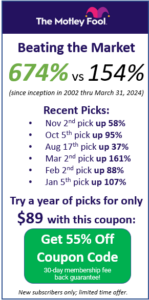What is a Mutual Fund?
Mutual Funds are a way you can buy into a wide range of stocks, bonds, money markets, or other securities all at once. They are professionally managed, so you are basically buying a piece of a larger portfolio.
Definition

Mutual Funds come in several different “flavors”, but the core concept is always the same: the fund is a pool of money contributed from many different investors that are used to purchase a bundle of securities. All contributors to the fund are given shares in proportion to how much they contributed, and they receive returns based on the performance of the underlying security.
Mutual funds are also sold in shares, just like stocks. However, unlike stocks, there may or may not be a limit to the number of shares outstanding at any given time (depending on the type of mutual fund), and it can be very common to own “fractions” of a share of a mutual fund.
Types Of Mutual Funds
Mutual Funds typically fall into one of three categories: Open Ended, Closed Ended, and Unit Investment Trusts.
Open Ended Mutual Funds
“Open Ended” means that there is no limit to the number of shares of these funds that can exist at any given time; however much money investors have contributed will be issued shares, and that will be used to buy more underlying securities. Investors can also cash out any day they want, selling off their shares in the fund at the market price for that day.
This also means that investors cannot day trade mutual funds; since the actual distribution of assets is managed by professional portfolio managers, the actual value of each share is not precisely known until the end of the day. Investors can only buy and sell their shares from the fund managers themselves, not trade their shares on the open market.
In practice, this means that you buy open-ended mutual funds for a fixed dollar amount, rather than as a number of shares. You will actually receive these shares at the end of the day (almost always 6:00pm New York Time), and so you will almost always have a decimal value (for example, 10.1252342 shares). Conversely, when you want to sell your shares, your order will execute at 6:00pm New York Time, when the transactions for the fund settle.
Closed Ended Funds
“Closed Ended” means that there is a fixed number of shares, and so these funds can trade on exchange (similar to an ETF). These funds are still professionally managed, but the total amount invested is determined only once; at the Initial Public Offering.
Unit Investment Trusts
These are much less common than the other types of funds, and are also closed-ended. These funds are special in that they have a limited lifespan; they are issued once, but the fund eventually “expires” and all investors are paid out based on their investment and the return of the underlying assets. These funds are also special in that they are not professionally managed: the holdings are determined at the Initial Public Offering and are fixed while the fund is active. However, investors can redeem their shares from the fund managers at any time, or even sell shares on the open market (although this is very rare).
Advantages To Using Mutual Funds
Mutual funds can be a very easy way to “diversify”, since there are many different types of mutual funds it is usually possible to find a selection to complement your portfolio. Mutual funds have historically been an important part of retirement planning; since the funds are professionally managed, they do not require as frequent attention compared to a portfolio of stocks you actively pick, buy, and sell.
Mutual funds also “pass through” dividends to their shareholders; if a stock owned by the mutual fund pays a dividend, it is paid directly to the mutual fund shareholders.
Disadvantages To Using Mutual Funds
The biggest disadvantage is that the professional management of the fund comes at a price; mutual funds generally charge a fee based on the initial capital invested. This can add up quickly, especially if the fund is underperforming (a major issue with retirement accounts during the financial crash was that mutual funds will still charge fees on your capital even if the value of the fund itself is decreasing, acting as a double-penalty).
Another major disadvantage is that you have no option to customize the holdings of a mutual fund; you are stuck with what the fund manager chooses. Of course, you should always diversify your portfolio outside owning a single (or even multiple) mutual funds, but you could end up in a position where you are “shorting” a stock while simultaneously “long” in a mutual fund you own.
Differences with ETFs
At first glance, there is very little difference between a closed-ended mutual fund and an ETF: both trade on an exchange, and both hold a wide range of assets. However, there are some important key differences:
- ETFs are typically not “managed”, in that they typically have holdings mimicking a particular index, (for example, the S&P 500) and the fund managers do not actively shift the holdings outside that index. This means it is possible to “buy into an index” that you want to hold, and you will know the actual holdings of the fund (and so the Net Asset Value) at any given time.
- Because they are not actively managed, the fees associated with ETFs are typically much lower.
- The tax structure for owning an ETF is more similar to owning stocks than Mutual Funds.
When choosing between ETFs and Mutual Funds, all of these are important considerations; because of the lower fees alone ETFs have become increasingly popular in the last 10 years. However, the fact that mutual funds are actively managed may make them more attractive to long-term retirement planning, (depending on your personal tastes).
For a list of the most popular mutual funds, click here!
Note When Trading Mutual Funds
Unlike Stocks, ETFs, or most other security types, when you buy mutual funds, (both in a real brokerage account or on HowTheMarketWorks) you specify how much you want to buy in Dollar Amounts, not Shares. This is because the actual value of the shares is not known at the time you make your purchase. It’s only calculated at the end of the day.
If you want to trade mutual funds, remember to specify the exact dollar amount you want to trade, not the number of shares!

 4 Reasons Why Your Business Need a Secure File Sharing Platform
4 Reasons Why Your Business Need a Secure File Sharing Platform
